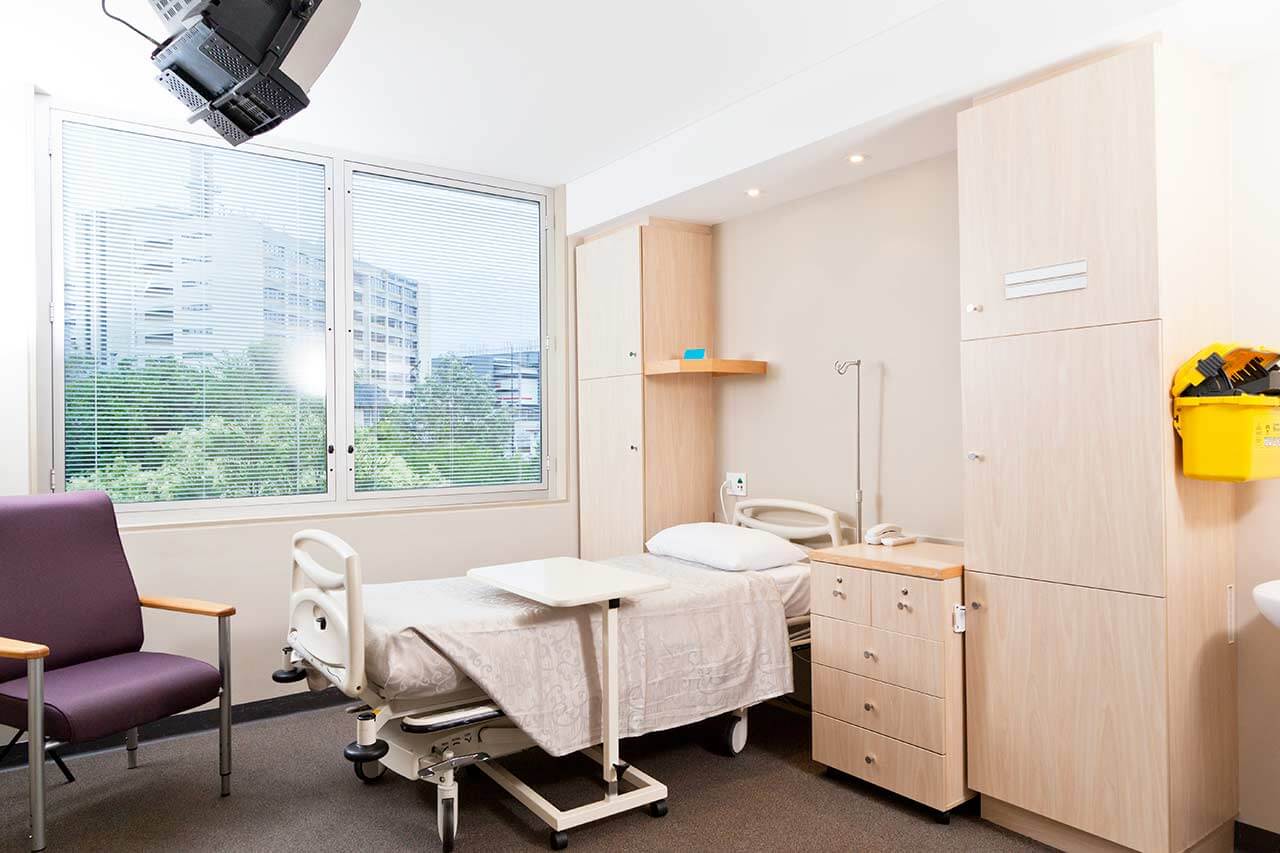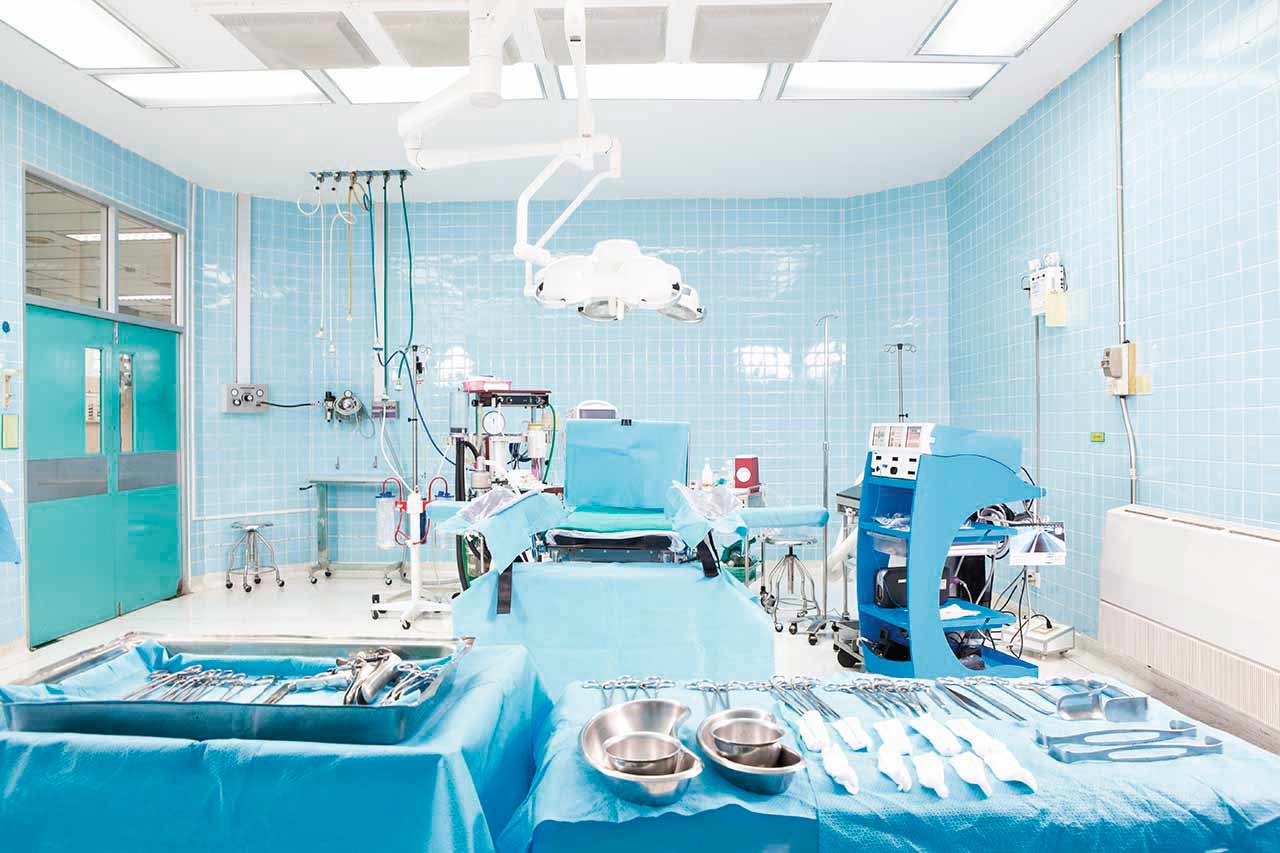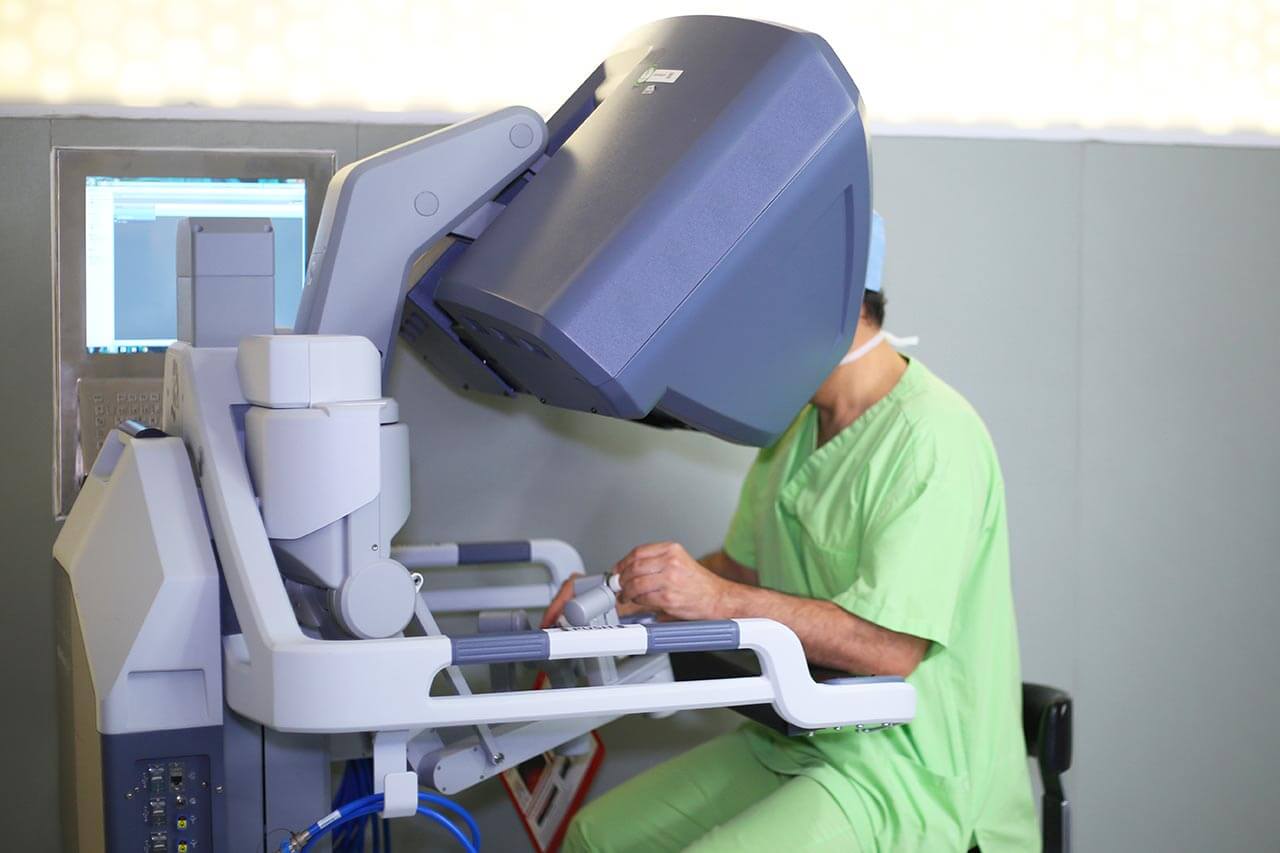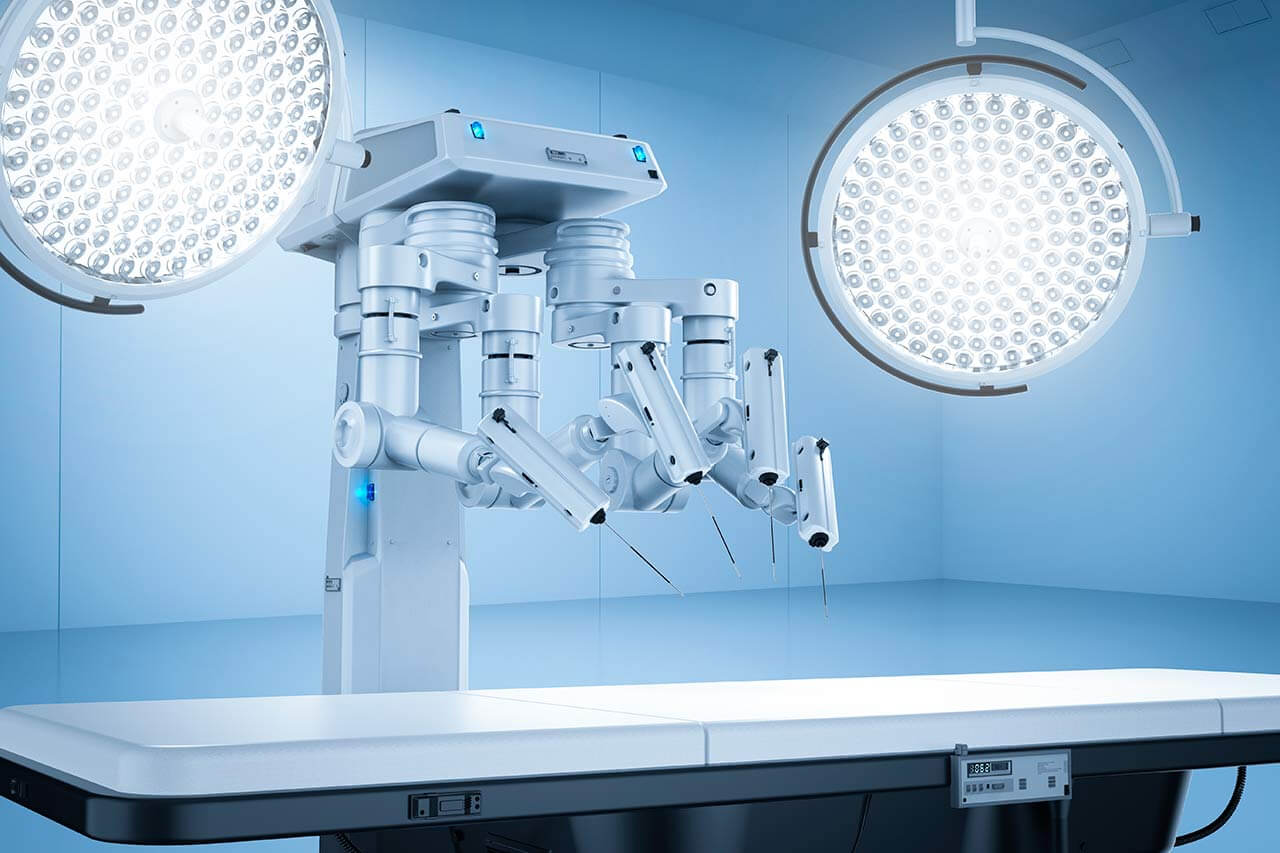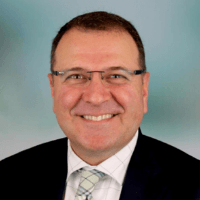
The program includes:
- Initial presentation in the clinic
- clinical history taking
- review of medical records
- physical examination
- urological examination
- laboratory tests:
- complete blood count
- clinical urine test and urine culture
- inflammation indicators (CRP, ESR)
- indicators of blood coagulation
- pelvic ultrasound
- MRI scan (on indication 1200 €)
- nursing services
- consultation of related specialists
- consultation of the chief physician and all leading experts
- development of individual treatment plan
- written statement
Required documents
- Medical records
- Scrotal ultrasound (if available)
Service
You may also book:
 BookingHealth Price from:
BookingHealth Price from:
About the department
The Department of Urology at the Asklepios Municipal Hospital Bad Wildungen offers the full range of advanced conservative and surgical treatment of diseases of the urinary system (kidneys, ureters, bladder and urethra) and male reproductive organs (prostate, testicles and penis). To detect urological diseases, the department uses such diagnostic tests as ultrasound scanning, digital radiography, cystoscopy, urodynamic testing, etc. The department's specialists have successful experience in endoscopic, laparoscopic and open surgical interventions of any complexity. The treatment regimen is developed for each patient individually, and, if possible, the doctors always give preference to sparing therapy. The department annually provides treatment to more than 2,100 patients, which demonstrates the high level of medical care and a high credit of patients' trust. The Chief Physician of the department is Dr. med. Dimitrios Skambas.
The department's primary specialization is the diagnostics and treatment of prostate, testicular, kidney and bladder malignancies. With all the diagnostic data, an interdisciplinary tumor board with the participation of urologists, oncologists, surgeons, radiation therapists, chemotherapists and other specialists studies the clinical case in detail and develops the optimal treatment regimen. During the diagnostic and therapeutic process, the doctors are guided by the recommendations of the European Association of Urology and the German Society of Urology. The treatment is mostly based on a surgical resection of a malignant tumor, which is complemented by highly effective chemotherapy. Depending on the complexity of the clinical case, chemotherapy can be carried out both on an inpatient and outpatient basis. The department has a wide range of the very latest chemotherapy drugs, which provide excellent treatment results. The vast clinical experience of the department's doctors allows them to competently combine chemotherapy drugs, as well as to select the optimal dose of chemotherapy in order to maximally destruct malignant cells with minimal damage to the patient's health.
The department's urologists quite often admit patients with benign prostatic hyperplasia. To establish an accurate diagnosis, the patient has to fill out a special questionnaire (international prostate symptom score (IPSS)) and undergo an ultrasound examination. In some cases, additional urodynamic examinations, cystoscopy and radiography may be required. At the initial stages of pathology, urologists prescribe only drug therapy aimed at the alleviation of symptoms. In the case of progression of the pathology, the patient requires surgery to remove prostate adenoma. The department offers two advanced surgical treatments – innovative GreenLight XPS™ laser therapy, bipolar and monopolar transurethral resection of prostate adenoma. In very rare cases, the patients with a very large prostate adenoma may be indicated open surgery.
The diagnostics and treatment of kidney stone disease is also an important focus of the department's clinical practice. The patients with suspected kidney stone disease may be appointed such diagnostic tests as X-ray, contrast-enhanced urography, computed tomography with and without contrast enhancement (in most cases, for renal colic). The department's specialists most often perform extracorporeal shock wave lithotripsy, percutaneous nephrolitholapaxy and mini-percutaneous nephrolithotripsy for kidney stone fragmentation. The department also performs surgery to remove kidney and ureteral stones using special ultrasound systems, laser technologies and the Lithoclast instrument. The choice of the treatment method is based on the size and number of kidney and ureteral stones.
The department specializes in the diagnostics and treatment of the following urological diseases:
- Malignant diseases
- Prostate cancer
- Testicular cancer
- Kidney cancer
- Bladder cancer
- Benign prostatic hyperplasia
- Urinary incontinence
- Kidney stone disease
- Urethral stenosis
- Vesicovaginal fistula
- Penile curvature and other penile malformations
- Ureteropelvic junction obstruction
- Other urological diseases
The department's therapeutic options include:
- Cancer treatment
- Surgical treatment
- Prostatectomy for prostate cancer
- Transurethral resection of bladder tumors, including all modern urinary diversion techniques
- Nephrectomy and renal artery embolization in the case of kidney cancer
- Testicular tumor removal
- Chemotherapy
- Radiation therapy
- Surgical treatment
- Benign prostatic hyperplasia treatment
- Drug therapy at the initial stages of the disease
- Innovative GreenLight XPS™ laser therapy
- Bipolar and monopolar transurethral resection of prostate adenoma
- Kidney stone disease treatment
- Extracorporeal shock wave lithotripsy
- Percutaneous nephrolitholapaxy and mini-percutaneous nephrolithotripsy
- Removal of kidney and ureteral stones using special ultrasound systems, laser technologies and the Lithoclast instrument
- Urinary incontinence treatment
- Drug therapy
- TVT and TVT-O sling procedures
- Sacral neuromodulation
- ATOMS-Band® and AMS 800™ artificial sphincter placement in men
- Plastic reconstructive surgery for urological diseases
- Plastic reconstructive surgery for urethral stenosis
- Plastic reconstructive surgery for ureteral stricture
- Plastic reconstructive surgery for ureteropelvic junction obstruction
- Plastic reconstructive surgery for vesicovaginal fistulas
- Plastic reconstructive surgery for penile curvature correction, Peyronie's disease treatment
- Other medical services
Curriculum vitae
Higher Education and Professional Career
- 1999 Study of Human Medicine at the Faculty of Medicine, Johann Wolfgang Goethe University Frankfurt am Main.
- 2006 Training for board certification, Department of Urology, St. Catherine Hospital Frankfurt am Main.
- 2009 Senior Physician, Department of Urology, St. Catherine Hospital Frankfurt am Main.
- 2011 Senior Physician with management responsibilities, Department of Adult and Pediatric Urology, Main-Kinzig Hospital Gelnhausen.
Additional Qualifications
- Andrology.
- Tumor drug therapy.
- X-ray diagnostics of the urinary tract.
Memberships in Professional Societies
- Fellow of the European Board of Urology (FEBU).
- German Society of Urology (DGU).
- European Association of Urology (EAU).
- Greek-German Society of Urology (GDGU).
- Hellenic Urological Association (HUS).
Photo of the doctor: (c) Asklepios Kliniken GmbH
About hospital
The Asklepios Municipal Hospital Bad Wildungen positions itself as a modern medical facility, which is focused on the provision of high-quality medical services using state-of-the-art medical technologies and advanced treatment methods. The hospital pays great attention to an individual approach to each patient, which is the basis for a successful treatment result. The medical complex enjoys the status of an academic hospital of the Philipps University of Marburg, thanks to which it has access to innovative medical developments, trains medical students and conducts advanced training for doctors. In addition, the medical facility is part of the Asklepios Kliniken GmbH – one of the three largest and most famous private medical networks in Germany.
The hospital has 10 specialized departments, as well as two interdisciplinary centers and an emergency medical service. The medical team of the hospital, which consists of more than 420 specialists, successfully treats simple common and especially complex diseases of the cardiovascular system, respiratory tract, musculoskeletal system, nervous system, spine, urinary system, etc. The Department of Radiology and the in-house laboratories serve for various diagnostic tests, which allow the doctors to establish an accurate diagnosis and develop the most effective treatment regimen, taking into account the particular clinical case of the patient. The hospital has 195 beds for patient hospitalization, and also provides medical care on an outpatient basis.
The special focus of the clinical activities of the medical facility is surgical treatment. The surgeons from various medical fields with brilliant success perform surgery to treat various diseases of the gastrointestinal tract, blood vessels, neurosurgical diseases, as well as interventions to treat orthopedic diseases. The hospital includes a certified Centre for Endoprosthetics (certified by the German Society of Orthopedics and Trauma Surgery), specializing in knee, hip and shoulder replacement surgery. The surgical treatment involves the use of modern medical technology, laparoscopic surgical techniques, state-of-the-art 3D imaging systems and navigation systems in order to ensure the highest level of safety of surgery.
Despite the many technical innovations in the hospital, the focus of the medical staff is on the patient, his health and comfort. The doctors' work with patients is based on respect and humanity.
Photo: (с) depositphotos
Accommodation in hospital
Patients rooms
The patients of the Asklepios Municipal Hospital Bad Wildungen live in comfortable single and double rooms. Each patient room has a separate bathroom with shower and toilet. The standard patient room furnishings include an automatically adjustable bed, a bedside table, a wardrobe, a TV, a radio and a telephone. The use of mobile phones in some buildings of the hospital is prohibited. The hospital also offers accommodation in a special section called Privita with enhanced-comfort patient rooms, the living conditions in which correspond to the level of rooms in a top-class hotel.
Meals and Menus
The patient and the accompanying person are offered tasty and balanced three meals a day. If for some reason you do not eat all foods, you will be offered an individual menu. Please inform the medical staff about your food preferences prior to treatment. The patients staying in the enhanced-comfort rooms are provided with an individual menu every day.
Further details
Standard rooms include:
Religion
The religious services are available upon request.
Accompanying person
During the inpatient program, the accompanying person can live with the patient in a patient room or a hotel of his choice. Our managers will help you choose the most suitable option.
Hotel
During an outpatient program, the patient can stay at the hotel of his choice. Our managers will help you choose the most suitable option.
